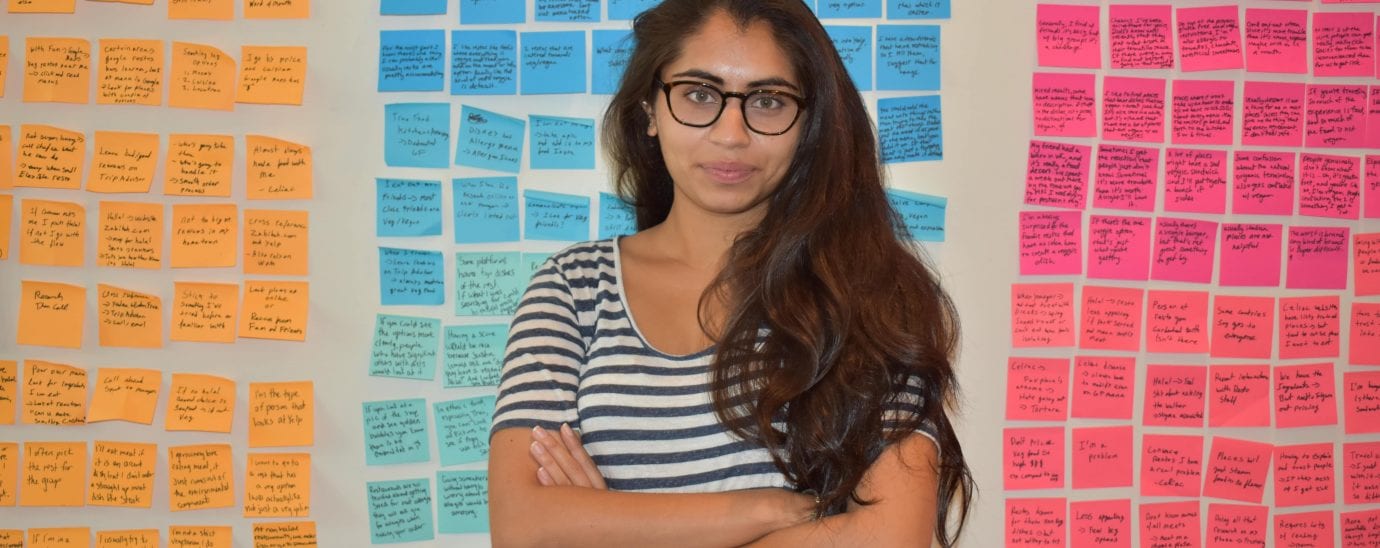Founder Feature: Puja Balachander, CEO at Devie


This week on our Founder Feature series we are talking to Puja Balachander, CEO at Devie – an app with an AI caring coach that enables parents to build strong relationships with their children through a range of bitesize activities, advice and mental health support.
Devie’s mission is to ensure every child has the best start in life. They’re working towards this by helping every parent feel confident in their ability to provide their child with this start.

Q: Could you tell us about your company and what you’re striving to achieve?
A: Devie is a social enterprise with a mission to help every parent feel confident and prepared to give their child the best start. We do this through Devie, a caring AI coach who supports parents with activities, advice, and emotional support designed for them. Devie is currently in beta, and available for iOS and Android.
In 5 years, we want to be the go-to resource for early years parenting, recommended by parents, governments, educators, and experts globally. We also want to be meaningfully contributing to closing the developmental gap between children from low and high income families.
Q: What made you decide to take on the challenge of founding your business?
A: I used to work in child and family services with the White House Presidential Innovation Fellows, and saw first hand what transformative impact support during the early years of parenting could have on families and the consequences when this didn’t happen. I also saw those vulnerable families were wary of accessing supportive services, and as a result, the cycle of vulnerability continued. I saw the need for an accessible service that supported families on their terms.
When I learned more about the impact and potential of the early years, I was convinced that this would be where my efforts would be most transformational. And when we started prototyping early versions of Devie and having an immediate impact on families and parents, it became clear this was something I wanted to continue doing.
Q: Tell us about some of the biggest obstacles you’ve had to overcome?
A: Finding the right team is a definite challenge. Those who can ride the highs and lows of the startup journey and come out stronger. At first, it was genuinely fun and fulfilling with everything being about the problem, and talking to users, learning, and testing to find what worked. But once it came time to formalise things more, find funding, find teammates, we wasted a lot of time and energy on interpersonal challenges. I’m lucky I’ve now built an incredible and supportive group of people around me where the focus has stayed on the work and the problem.
Q: What’s most exciting about your traction to date?
A: Seeing how open and vulnerable parents are with Devie. This was something we hoped would happen, but seeing how parents confide in Devie and the quality of interactions is really exciting and gratifying.
Another exciting thing has been the demand. We got our beta users within a week or two with no marketing spend. It’s been clear that parents are looking for a solution like this, and they’ve been active and willing to give feedback to help us improve.

Q: What keeps you up at night/what are you paranoid about?
A: Really the thing that keeps me up is the fear that this awesome product I can clearly see a path forward for, could die on the vine because of a lack of funding or interpersonal issues. It just feels scary that this thing I’m working really hard on, that solves such an important challenge, and it feels like we’re close to finding PMF on, could be derailed by these sort of “external” factors.
Q: How many hours of sleep do you get and what is your morning/evening routine?
A: I get close to 5-6 hours of sleep a night. In the morning, I wake up around 6:00 AM, meditate, read a chapter of whatever child development/parenting book I’m currently reading, make myself a cup of coffee and have our daily scrum meeting with the development team in India.
Q: How far are you willing to go to see your idea become a success?
I’m a pretty gritty person, so I’m willing to go quite far to see my idea become a success. I’m also not good at discounting sunk costs, so for me, every hour I put in makes me more invested in seeing it pay off. So as far as my effort is concerned, I’ll push myself to the limit.
What I’m not willing to do is compromise on our social mission in order to “succeed.” I think what’s really exciting to me about Devie is that I see the potential to build a venture-scale, incredibly profitable business whose financial success reinforces our social aims.
Q: What’s one piece of advice you’d give to budding innovators taking the same journey?
A: When in doubt, act on what your users do, rather than what they say. If when you talk to them, users talk about other people your product would be good for, you haven’t achieved PMF. Also be scrappy for as long as possible! You can test so much without going all in.
Learn more about how Devie is transforming parenting for good at www.deviecoach.com
